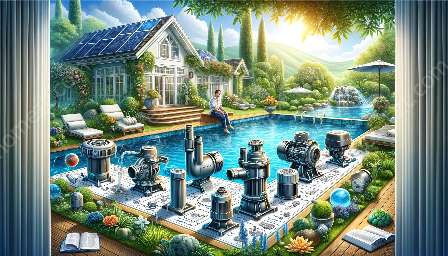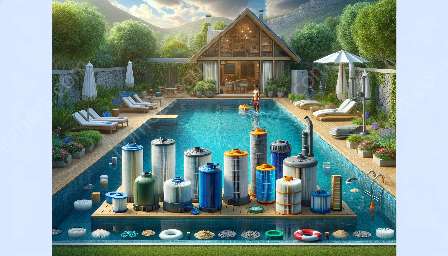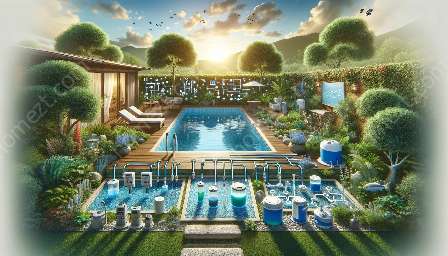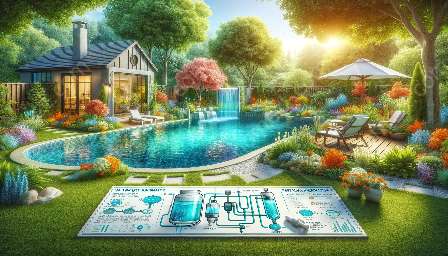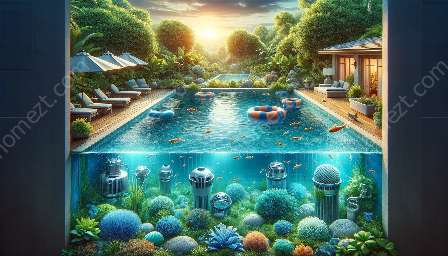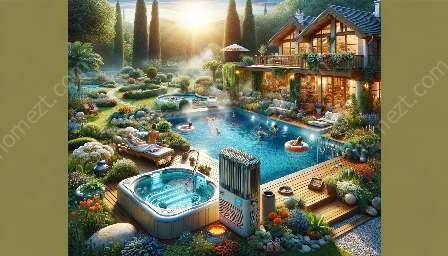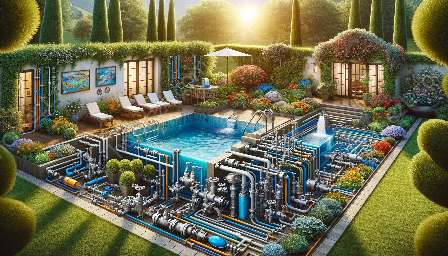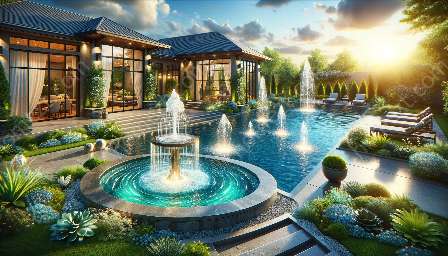When it comes to building a pool, the choice of construction materials is crucial to the pool's longevity, aesthetics, and functionality. Different pool equipment and various swimming pools and spas require specific materials to ensure safety and performance. In this comprehensive guide, we will explore the various pool construction materials, their compatibility with pool equipment, and their application in swimming pools and spas.
Types of Pool Construction Materials
Pool construction materials encompass a wide range of options, each with its distinct advantages and considerations. The main types of materials used in pool construction include:
- Concrete: Concrete is a popular choice for pool construction due to its durability and versatility. It can be molded into any shape and is compatible with various pool equipment types. Concrete pools are often customized to fit specific design preferences and can be integrated with a wide range of swimming pool and spa features, such as waterfalls and in-pool seating.
- Fiberglass: Fiberglass pools are known for their low maintenance and quick installation. They are compatible with different pool equipment and are available in various sizes and shapes. Fiberglass materials offer a smooth and non-porous finish, minimizing the risk of algae growth and reducing maintenance requirements.
- Vinyl: Vinyl pool construction materials are relatively affordable and suitable for various pool equipment configurations. These materials are flexible and can adapt to the shape of the pool, offering customization options. However, proper maintenance and care are essential to ensure the longevity of vinyl pool liners.
- Natural Stone: Natural stone provides an aesthetic appeal to pool construction, especially for swimming pools and spas. Stone materials, such as granite and limestone, offer durability and a distinct visual impact. They are often used for pool coping, decking, and water feature accents.
- Tile: Tiles are commonly used as pool finishes due to their decorative possibilities and resistance to water-related wear and tear. They are compatible with various pool equipment and can be used to create stunning mosaic designs and patterns, enhancing the overall appearance of the pool.
Compatibility with Pool Equipment
Each type of pool construction material has specific compatibility considerations when it comes to pool equipment. Pool equipment, such as pumps, filters, and heaters, must work seamlessly with the chosen construction materials to ensure optimal performance and efficiency. Here's how different pool construction materials align with various pool equipment:
- Concrete: Concrete pools can accommodate a wide range of pool equipment, including integrated lighting, heating systems, and water features. The versatility of concrete allows for easy customization to accommodate different types of pool equipment configurations.
- Fiberglass: Fiberglass pools are compatible with most standard pool equipment, such as pumps and filters. However, additional considerations may be required for customized equipment installations, as the structure of fiberglass pools differs from traditional concrete or vinyl pools.
- Vinyl: Vinyl pool construction materials are compatible with standard pool equipment, but care must be taken during installations to ensure proper sealing and support for equipment fixtures. Vinyl liners can be customized to accommodate specific equipment requirements.
- Natural Stone: Natural stone materials are often used in conjunction with pool equipment, such as waterfalls, fountains, and integrated spas. The compatibility of stone with pool equipment depends on the specific design and structural considerations.
- Tile: Tiles can be integrated with various pool equipment, especially for aesthetic and functional purposes. While tiles themselves may not directly influence the compatibility of pool equipment, their installation and maintenance can affect the performance of surrounding equipment.
Application in Swimming Pools and Spas
Understanding the application of different pool construction materials in swimming pools and spas is essential for creating a cohesive and functional aquatic environment. Whether designing a residential pool or a commercial spa, the choice of materials significantly impacts the overall appeal and functionality. Here's how each type of pool construction material can be applied in swimming pools and spas:
- Concrete: Concrete is versatile and suitable for both swimming pools and spas. It can be shaped and formed to create elaborate designs and accommodate various water features, such as built-in seating, tanning ledges, and custom spa configurations.
- Fiberglass: Fiberglass is commonly used in pre-formed pool and spa shells, offering quick installation and a smooth, non-porous surface ideal for spas. Its compatibility with pre-built spa equipment makes it a popular choice for integrated spa designs.
- Vinyl: Vinyl materials are primarily used in residential swimming pools, offering flexibility in design and size. However, they can also be applied in smaller spa configurations, providing a customizable solution for both pool and spa installations.
- Natural Stone: Natural stone is often used for pool coping, decking, and water feature accents in swimming pools and spas. Its natural elegance and durability make it a preferred choice for creating visually striking aquatic environments in both residential and commercial settings.
- Tile: Tiles are commonly used as pool finishes and are also suitable for creating decorative accents in spa designs. Their versatility and durability make them an ideal choice for enhancing the visual appeal and functionality of swimming pools and spas alike.
Conclusion
Choosing the right pool construction materials is an important aspect of creating a durable, visually appealing, and functional pool environment. Understanding the compatibility of different materials with pool equipment and their application in swimming pools and spas is key to making informed decisions. By exploring the various options and considerations associated with pool construction materials, individuals can make well-informed choices that align with their specific preferences and project requirements.

